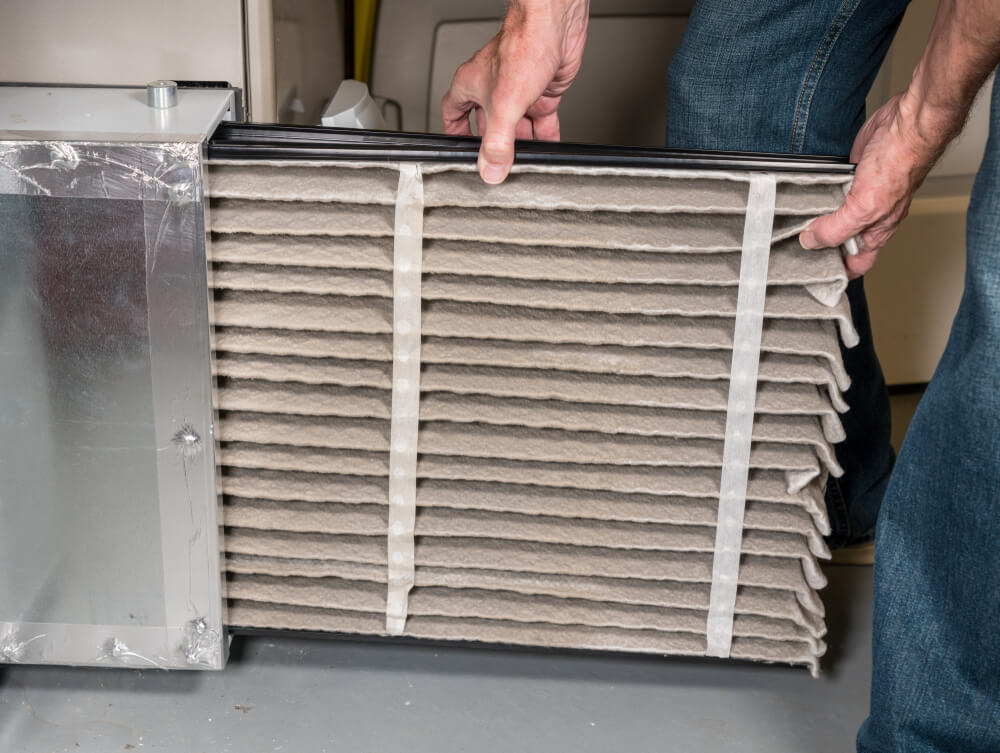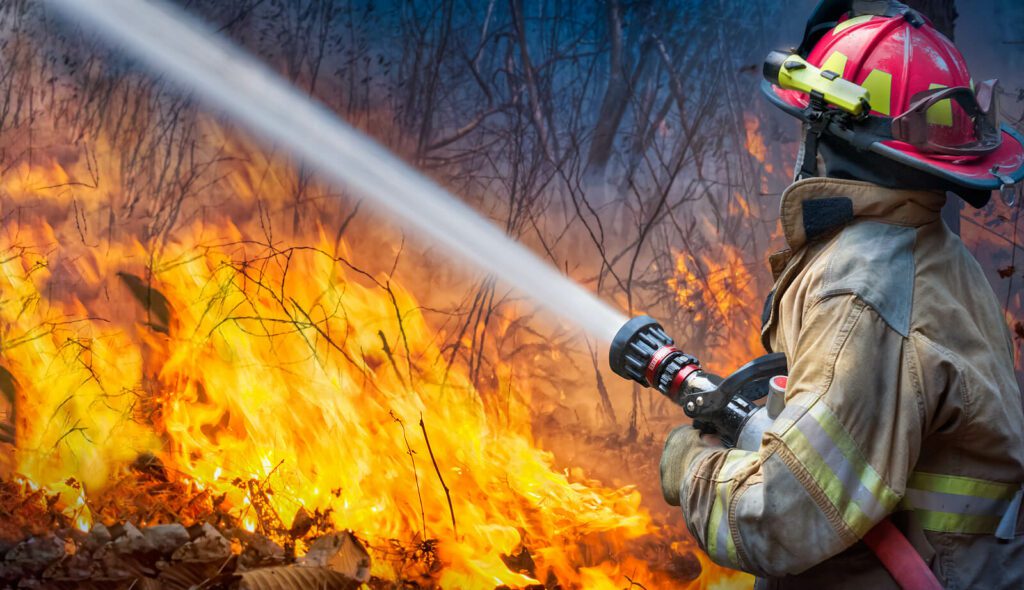During wildfire season, typically summer to fall, fire advisories may be issued in your area. A wildfire can pose serious hazards even if you’re not in the immediate vicinity of the blaze. Harmful particulates, chemicals, and gases can spread for hundreds of miles.
Particles that are too small to be seen with the naked eye, like ash and dust, can get inside through natural ventilation, mechanical ventilation systems, and any small cracks or openings around windows and doors. Fortunately, your air conditioner can mitigate wildfire smoke and ash, and improve your indoor air quality.
Using Your AC to Protect Against Wildfire Smoke
During a wildfire advisory, stay inside if you know there are hazardous conditions or local authorities have advised you to do so. Make sure you keep all windows and doors closed.
Run your air conditioner when it’s smoky outside to help filter smoke and ash out of your indoor air.
How to Run Your Air Conditioner During a Fire
Running your air conditioning does help with wildfire smoke. Your indoor air gets pulled in from the HVAC return and cycled through the filter, which helps remove some of the smoke and ash that may have seeped into your indoor air.
You can adjust your HVAC system or air conditioner so smoke doesn’t get into your home. Follow these steps to help prevent smoke from getting into your home:
- If you have one, find the fresh air intake of your central HVAC system and close it.
- Turn on your system’s “Fan” or “Recirculate” option to ensure the system is continuously running and moving air through the filter. If you don’t see those options, look for “Auto/On” and switch it to “On.”
- If an evaporative cooler is used, turn it off when conditions outside are smoky. The unit can draw smoke into your home.
- For window ACs, close the outdoor air damper. If this isn’t possible, turn off the unit and use a fan instead of the air conditioner. Verify there’s a tight seal between the window and the AC unit so no smoke seeps in.
- During smoky conditions, don’t use portable air conditioners that vent out a window with a single hose. A unit with two hoses can be used if the window vent kit is properly sealed. Most portable and window ACs do not help much to filter out smoke due to their compact size and limited filtration capabilities.
- If a fire advisory is issued in your area, turn off bathroom fans, kitchen range fans, and window box fans if you use them. Any device that vents air outside will cause other air to be pulled in from attics, basements, crawl spaces, or outside. When the air is vented, the resulting vacuum causes air to be pulled in.
If you have to go outside, wear protective gear like N95 or P100 respirator masks. Consider grabbing a backup filter for your AC while you are out.
The Importance of Maintaining Your Filter

Your HVAC air filter is your greatest defense against pollution from wildfires. Make sure each filter is clean and fresh. Investing in higher-quality filters is also a good idea.
Minimum Efficiency Reporting Value (MERV) rated filters are ranked on a scale from one to 16. Use a MERV 11 to 15 filter for the best wildfire protection, as they can filter out the smaller ash and smoke particles. For improved air filtration, we recommend installing a whole-home air filtration system.
Changing an AC filter is fairly simple. It’s usually located near the main vent or inside the access door to your HVAC equipment. To change the filter, turn off the system and follow the directions printed on your unit for removing the old filter and inserting the new one. Check your filter often during and after a wildfire advisory.
Should I Keep My AC On?
Air conditioners can be run continuously during a fire advisory if you have fresh filters and have closed the intake vent. Keep the system on, so it is continually cycling and filtering the air. You can set it so only the fan is operating if the temperature is getting too cool.
Perform HVAC Maintenance After a Wildfire
Wildfires create conditions that cause HVAC systems to work harder. That’s why it’s important to do the following after a wildfire:
- Change the Filter: Any type of air filter will get clogged in fire and smoke conditions, increasing the amount of energy used by your HVAC system. Motors can burn out if the filter is too clogged. Consider adding a charcoal-infused carbon filter; it works alongside a standard air filter by filtering out fumes that may be present.
- Get Your HVAC System Inspected: An HVAC technician should inspect your AC system, as they know the types of damage to look for, such as corroded condenser coils, clogged vents, or problems with outdoor units. Professional service can prepare your HVAC for the next fire season.
- Clean Your Ductwork: Soot and dust from wildfire smoke can build up in HVAC ducts and then circulate in your home. Duct cleaning should be scheduled as soon as possible after a fire advisory. Service professionals have the tools and equipment to thoroughly clean ducts, vents, and intakes to keep your indoor air clean.
- Open and Maintain Your Fresh Air Intake: During the wildfire, you should keep your fresh air intake closed. But, after the fire, it’s important to unblock your fresh air intake to ensure your system works with maximum efficiency. You should also clean out your fresh air intake and change the filter.
Schedule home air duct cleaning with Black Hills if a wildfire or smoke has affected your area. Our certified technicians specialize in air duct cleaning services near Olympia, Washington, and can inspect and maintain your HVAC system after a fire advisory.
To request service, contact us online.
